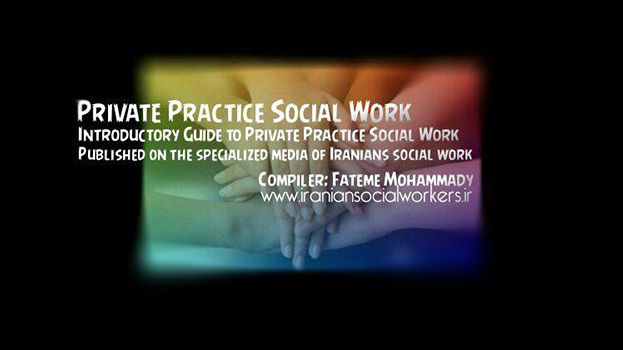Private Practice Social Work

Introductory Guide to Private Practice Social Work
By Kaitlin Louie
According to the National Association of Social Workers (NASW), one of the most frequently asked questions from members is “How can I start my own private practice?” Building a private practice is a challenging endeavor, and one that requires a great deal of initiative, professional experience in the field, organization and business savvy, and maintenance of relevant licenses and certifications. However, many clinical social workers in private practice feel that the benefits of this career path outweigh the difficulties. For example, working in private practice can offer social workers the ability to specialize in a certain area of social work practice, control their schedule and the types of clients they see, and build creative and innovative ways of helping people address their problems.
Most licensed clinical social workers (LCSWs) who go into private practice do so as psychotherapists, though some LCSWs may start business consultancies or, if they have macro-level experience, practices that help social service organizations with program development and research.
According to the NASW, some of the key steps involved in working as a private social work practitioner are:
- Earn an MSW from a CSWE accredited institution.
- Obtain and maintain clinical social work licensure in one’s state of residence.
- Complete at least 3000 hours or two years of supervised clinical work post-graduation.
- Obtain a National Provider Identification (NPI) Number, which all mental health care providers must hold in order to serve clients.
- Research and manage the necessary administrative and logistical aspects of setting up and maintaining a business, including potentially:
- Obtaining a Federal Tax Identification Number and professional liability insurance, if applicable
- Marketing one’s practice through a website, marketing materials, promotional workshops, and referral streams
- Evaluating and addressing the costs of setting up a business, and obtaining relevant legal and/or accounting advice where necessary
- Regularly consulting experts in one’s field and participating in continuing education and additional trainings to keep skills sharp and build one’s repertoire of therapeutic modalities
Click here to get the full text of this article
Compiler: Fateme Mohammady
================
Published on the specialized media of Iranians social work
www.iraniansocialworkers.ir

